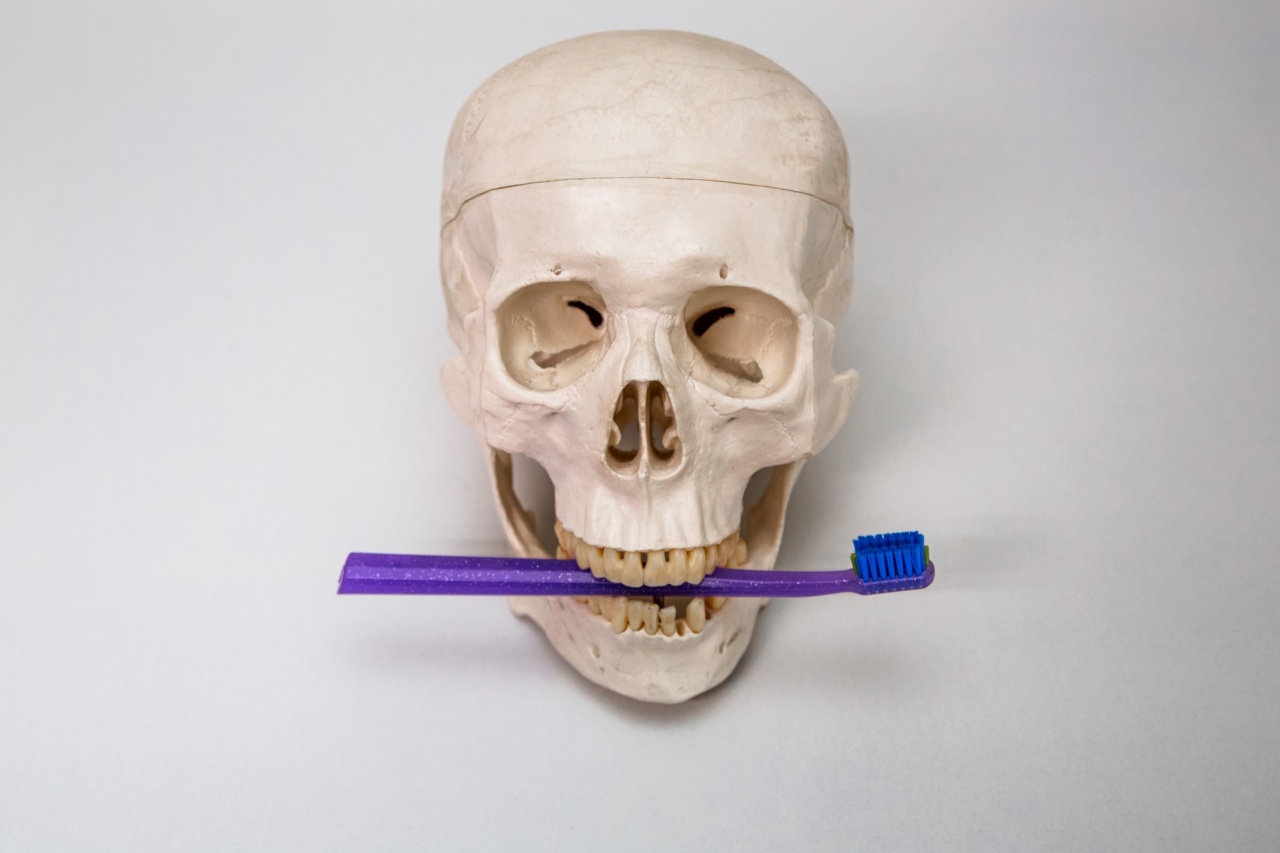Osteoporosis is a condition characterized by low bone density and increased risk of fractures. It is a silent disease that often goes unnoticed until a fracture occurs. Calcium plays a vital role in maintaining bone health and preventing bone loss.
In this article, we will explore the importance of calcium in preventing osteoporosis and discuss how to incorporate adequate amounts of calcium into your diet.
What is Osteoporosis?
Osteoporosis is a common bone disease that weakens bones, making them fragile and more susceptible to fractures. It occurs when the body loses too much bone mass, makes too little bone, or both.
As a result, bones become porous, lose their density, and become more prone to fractures even with minimal trauma. Osteoporosis commonly affects the spine, hips, and wrists.
The Role of Calcium in Bone Health
Calcium is an essential mineral for overall health, but its role in maintaining bone health is particularly important. Approximately 99% of the body’s calcium is stored in the bones and teeth.
The remaining 1% is involved in various crucial functions such as muscle contraction, nerve transmission, and blood clotting. When dietary intake is inadequate, the body draws calcium from the bones to meet the demands of these vital functions.
Calcium is required for the growth, development, and maintenance of bones. It is an integral part of bone structure, providing strength and rigidity.
Adequate calcium intake during childhood and adolescence is crucial for achieving optimal peak bone mass, which is the maximum amount of bone a person can accumulate. As people age, bone breakdown starts to exceed bone formation, leading to bone loss. Sufficient calcium intake throughout life can help slow down this natural process.
Recommended Daily Calcium Intake
The recommended daily intake of calcium varies depending on age, sex, and life stage. Here is a breakdown of the recommended daily calcium intake:.
1. Infants (0-6 months): 200 mg.
2. Infants (7-12 months): 260 mg.
3. Children (1-3 years): 700 mg.
4. Children (4-8 years): 1,000 mg.
5. Adolescents (9-18 years): 1,300 mg.
6. Adults (19-50 years): 1,000 mg.
7. Men (51-70 years): 1,000 mg.
8. Women (51-70 years): 1,200 mg.
9. Adults (71 years and older): 1,200 mg.
10. Pregnant or lactating women: 1,000-1,300 mg.
Calcium-Rich Foods
Meeting the recommended daily calcium intake can be easily achieved through a balanced and varied diet. Several foods are excellent sources of calcium. Here are some calcium-rich foods:.
1. Dairy products: Milk, yogurt, and cheese are known for their high calcium content. Opt for low-fat or non-fat varieties to minimize saturated fats.
2. Leafy green vegetables: Broccoli, kale, collard greens, and spinach contain significant amounts of calcium.
3. Tofu: Made from soy, tofu is a versatile and nutrient-rich source of calcium.
4. Legumes: Soybeans, chickpeas, and black beans are not only rich in calcium but also provide other essential nutrients.
5. Fish: Certain types of fish, such as salmon and sardines, contain calcium in addition to omega-3 fatty acids.
6. Nuts and seeds: Almonds, sesame seeds, and chia seeds are excellent sources of calcium.
7. Fortified foods: Many food products, including plant-based milk alternatives, orange juice, and breakfast cereals, are fortified with calcium.
Calcium Supplements
In some cases, it may be challenging to meet the recommended calcium intake solely through diet. In such instances, calcium supplements can be a helpful addition.
It is important to choose the right supplement and consult a healthcare professional for guidance. Calcium carbonate and calcium citrate are the two commonly available forms of calcium supplements. Calcium carbonate should be taken with meals, whereas calcium citrate can be taken with or without food.
It is worth noting that excessive calcium intake through supplements may lead to adverse health effects.
Consuming more than the tolerable upper intake level (UL) for calcium, which is 2,500 mg per day for adults, can increase the risk of kidney stones, gastrointestinal issues, and interfere with the absorption of other minerals like iron and zinc. Therefore, it is crucial to achieve a balance and not solely rely on supplements without assessing dietary intake.
Lifestyle Factors Affecting Calcium Absorption
While calcium intake is important, certain lifestyle factors can influence calcium absorption and utilization within the body. Here are some factors to consider:.
1. Vitamin D: Adequate vitamin D levels are necessary for the absorption of dietary calcium. Ensure you are getting enough sunlight exposure and consider vitamin D supplements if required.
2. Physical activity: Regular weight-bearing exercise, such as walking, jogging, and resistance training, promotes bone health and helps maintain bone density.
3. Smoking and alcohol consumption: Both smoking and excessive alcohol intake can negatively affect calcium absorption and increase the risk of osteoporosis.
4. Caffeine: While caffeine does have a slight diuretic effect, moderate consumption is unlikely to have a significant impact on calcium levels.
5. Medications: Some medications, such as corticosteroids and certain antiepileptic drugs, can interfere with calcium absorption. Consult your healthcare provider regarding any potential medication interactions.
Conclusion
Calcium plays a crucial role in maintaining bone health and preventing osteoporosis.
Sufficient calcium intake throughout life, combined with other essential nutrients, regular exercise, and a healthy lifestyle, can help prevent bone loss and reduce the risk of fractures. While meeting the recommended daily calcium intake through a balanced diet is ideal, calcium supplements can be beneficial in some cases.
It is important to consult a healthcare professional for personalized guidance to ensure an appropriate calcium intake based on individual needs.































